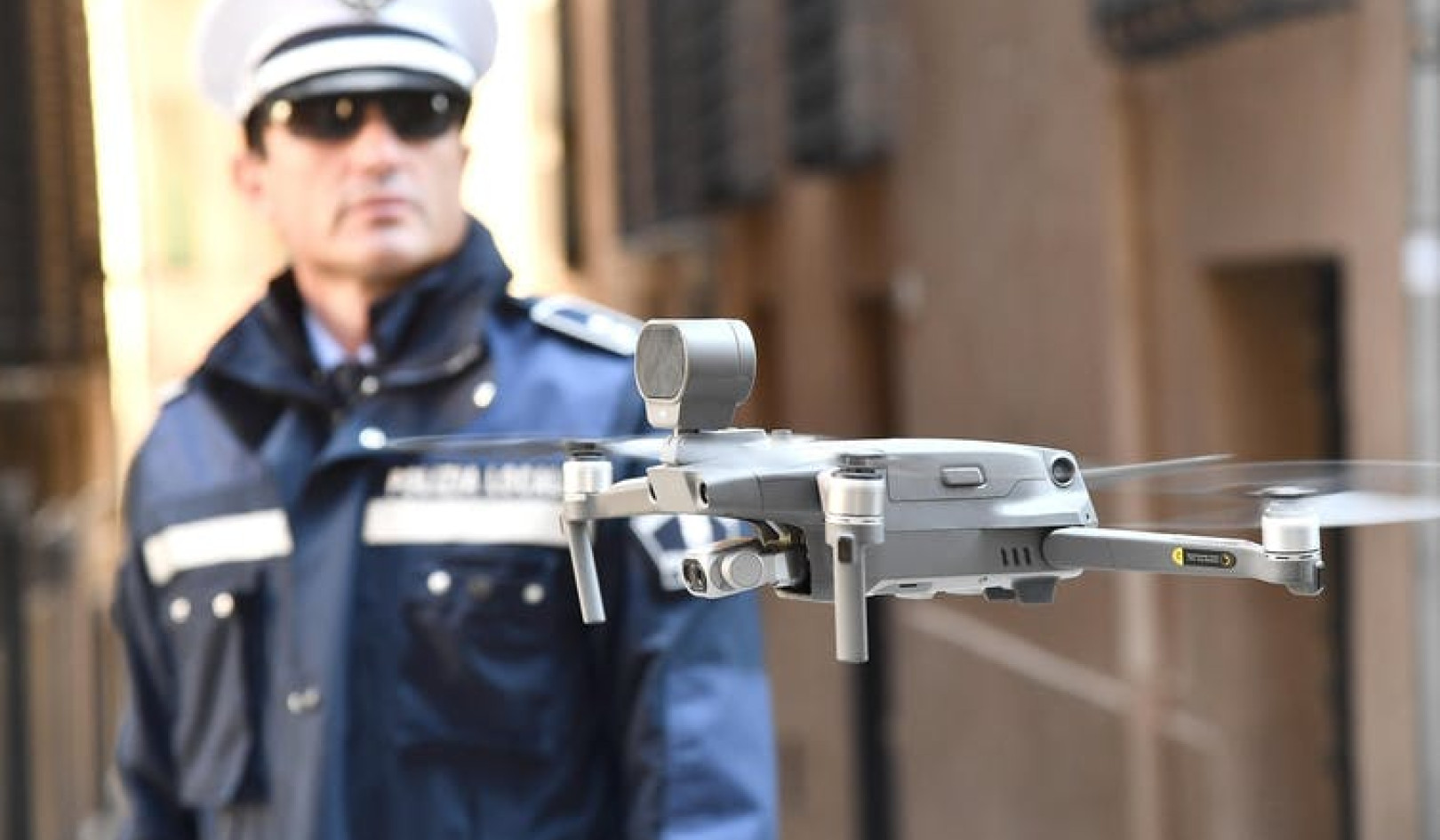
In this Article:
- What were the most divisive moments during Trump’s presidency?
- How did Trump’s policies impact women’s rights and civil liberties?
- What role did Trump’s handling of the pandemic play in needless deaths?
- How did Trump's presidency fuel hate and division in America?
- How did Trump’s business dealings and profit from his presidency damage public trust?
Trump Presidency Failures: The 10 Worst Moments
by Robert Jennings, InnerSelf.com
Donald Trump's presidency left an indelible mark on America. For some, his time in office was a rallying cry for change and a shift in the political landscape. But for many others, his presidency was defined by chaos, inequality, and deep social division. In the video Robert Reich, "10 Worst Things About The Trump Presidency," former U.S. Secretary of Labor Robert Reich lays out a damning indictment of Trump's leadership, offering an objective look at the lasting damage to America's social fabric, democratic institutions, and international standing.
A Presidency Defined by Division
One of the most glaring legacies of Trump's time in office was his role in deepening the divides within the country. Rather than acting as a unifying figure, Trump often stoked fear and inflamed racial and social tensions. Reich points out that Trump's presidency saw a sharp increase in hate crimes, with a notable rise in violence against marginalized communities. His inflammatory rhetoric—such as his failure to fully denounce white supremacist groups like the neo-Nazis in Charlottesville—signaled a tacit endorsement of the divisive forces that were pulling the country apart.
Trump's administration also saw a disturbing increase in violent crime, including a record number of mass shootings. According to Reich, gun sales skyrocketed under Trump, with the former president proudly proclaiming that his administration "did nothing" to restrict gun ownership, even as the country experienced over 1,700 mass shootings during his time in office.
The Proud Boys and the January 6th Insurrection
Trump's association with far-right extremist groups, such as the Proud Boys, played a significant role in inciting the violence that culminated in the January 6th attack on the U.S. Capitol. In one of the most infamous moments of his presidency, Trump urged the Proud Boys to "stand back and stand by," a phrase that Reich argues encouraged the group and others like them to engage in violent actions to undermine the democratic process.
The Insurrection on January 6th, 2021, was a direct attack on American democracy, and it remains one of the darkest chapters in modern U.S. history. Trump's role in inciting this attack, from his claims of a "rigged election" to his refusal to take immediate action to stop the violence, is a stark reminder of how dangerous his presidency became to the core institutions of democracy. Reich highlights the disturbing fact that even after this attack, Trump remains a prominent figure in American politics, with many supporters seemingly forgetting the severity of these events.
The Attack on Women's Rights
Among the lasting effects of Trump's presidency is his legacy of reshaping the U.S. judiciary, particularly with his Supreme Court appointments. Reich emphasizes Trump's pivotal role in overturning Roe v. Wade. This landmark decision guaranteed abortion rights for women across the country. As a direct result of Trump's judicial appointments, one in three American women now live in states where abortion is either banned or severely restricted.
Trump's selection of Brett Kavanaugh, a man accused of sexual assault by multiple women, further exemplifies his disregard for the safety and rights of women. Despite widespread outcry, Trump's administration interfered in the FBI's investigation into Kavanaugh's alleged misconduct, ensuring that the judge would be confirmed. This disregard for women's voices and concerns has had a lasting impact on reproductive rights and gender equality in America.
Trump's Failed Pandemic Response
Perhaps one of the most consequential aspects of Trump's presidency was his mishandling of the COVID-19 pandemic. Reich reminds us that by the time Trump left office, roughly 3,000 Americans were dying of COVID-19 each day, a staggering and tragic figure that could have been significantly reduced with better leadership. Trump's decision to disband the National Security Council's pandemic response team and ignore the Obama administration's pandemic playbook left the country unprepared for the crisis that would unfold in 2020.
Even more damning, Trump repeatedly lied to the American people about the severity of the virus, downplaying the threat and promoting dangerous and unproven "cures," such as hydroxychloroquine and even injecting disinfectants. His negligence and dishonesty cost hundreds of thousands of lives, according to experts, and left a nation in mourning.
Profiting from the Presidency
In addition to his policy failures, Trump used his time in office to enrich himself and his family. Reich reveals that Trump made an estimated $160 million during his presidency, profiting off foreign governments and others who sought favor with his administration. He also charged the U.S. Secret Service more than $1 million to stay at his properties while they were tasked with protecting him. These blatant conflicts of interest are emblematic of Trump's approach to governance—one that prioritized personal gain over public service.
The Border Wall and Family Separation
One of Trump's key campaign promises was to build a wall along the U.S.-Mexico border. However, his handling of immigration issues went far beyond physical infrastructure. Trump's administration implemented a policy of family separation, tearing more than 5,000 children away from their parents at the border, often with no plans to reunite them. The lasting psychological damage inflicted on these children, many of whom were placed in cages in overcrowded facilities, is a dark stain on America's moral conscience.
Trump's immigration policies extended to a Muslim ban, an attempt to block entry to the U.S. for people from several Muslim-majority countries. This policy, rooted in xenophobia and fearmongering, sparked international outrage and was widely condemned as an attack on religious freedom and human rights.
The Big Lie and the Assault on Democracy
In the aftermath of the 2020 election, Trump began spreading what has since been referred to as the Big Lie—the false claim that the election was stolen. Although his own Justice Department, campaign staff, and even his attorney general confirmed there was no widespread fraud, Trump continued to push this narrative. Reich emphasizes that this Lie not only undermined faith in the democratic process but also directly contributed to the January 6th Insurrection.
Trump's repeated efforts to overturn the election, from pressuring state officials to his attempts to use fake electors, demonstrated a blatant disregard for the rule of law. His final attempt to bully Vice President Pence into obstructing the certification of the election was the culmination of his assault on democracy—an apparent attempt to hold onto power by any means necessary.
As Robert Reich points out in this video, Trump's presidency was characterized by division, corruption, and disastrous policies that left America weaker and more divided. Whether through his mishandling of the COVID-19 pandemic, his undermining of democratic institutions, or his attacks on women's rights, Trump's time in office serves as a cautionary tale of the dangers of unchecked power and the lasting damage it can cause.
As the country moves forward, it is vital to remember the lessons of the Trump presidency and ensure that the dark chapter it represents does not repeat itself. The stakes for American democracy have never been higher, and the path ahead requires reflection, accountability, and a commitment to rebuilding the trust and unity that Trump so effectively dismantled.
About the Author
 Robert Jennings is co-publisher of InnerSelf.com with his wife Marie T Russell. He attended the University of Florida, Southern Technical Institute, and the University of Central Florida with studies in real estate, urban development, finance, architectural engineering, and elementary education. He was a member of the US Marine Corps and The US Army having commanded a field artillery battery in Germany. He worked in real estate finance, construction and development for 25 years before starting InnerSelf.com in 1996.
Robert Jennings is co-publisher of InnerSelf.com with his wife Marie T Russell. He attended the University of Florida, Southern Technical Institute, and the University of Central Florida with studies in real estate, urban development, finance, architectural engineering, and elementary education. He was a member of the US Marine Corps and The US Army having commanded a field artillery battery in Germany. He worked in real estate finance, construction and development for 25 years before starting InnerSelf.com in 1996.
InnerSelf is dedicated to sharing information that allows people to make educated and insightful choices in their personal life, for the good of the commons, and for the well-being of the planet. InnerSelf Magazine is in its 30+year of publication in either print (1984-1995) or online as InnerSelf.com. Please support our work.
Creative Commons 4.0
This article is licensed under a Creative Commons Attribution-Share Alike 4.0 License. Attribute the author Robert Jennings, InnerSelf.com. Link back to the article This article originally appeared on InnerSelf.com
Article Recap:
This article explores Robert Reich's revelations about the failures and worst moments of Donald Trump’s presidency. From his mishandling of the COVID-19 pandemic to fueling racial division and family separation, Trump’s legacy left deep scars on the country’s social, political, and economic fabric. His administration's policies and decisions continue to affect American democracy and unity.

Related Books:
On Tyranny: Twenty Lessons from the Twentieth Century
by Timothy Snyder
This book offers lessons from history for preserving and defending democracy, including the importance of institutions, the role of individual citizens, and the dangers of authoritarianism.
Click for more info or to order
Our Time Is Now: Power, Purpose, and the Fight for a Fair America
by Stacey Abrams
The author, a politician and activist, shares her vision for a more inclusive and just democracy and offers practical strategies for political engagement and voter mobilization.
Click for more info or to order
How Democracies Die
by Steven Levitsky and Daniel Ziblatt
This book examines the warning signs and causes of democratic breakdown, drawing on case studies from around the world to offer insights into how to safeguard democracy.
Click for more info or to order
The People, No: A Brief History of Anti-Populism
by Thomas Frank
The author offers a history of populist movements in the United States and critiques the "anti-populist" ideology that he argues has stifled democratic reform and progress.
Click for more info or to order
Democracy in One Book or Less: How It Works, Why It Doesn't, and Why Fixing It Is Easier Than You Think
by David Litt
This book offers an overview of democracy, including its strengths and weaknesses, and proposes reforms to make the system more responsive and accountable.





























